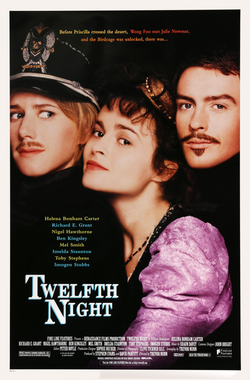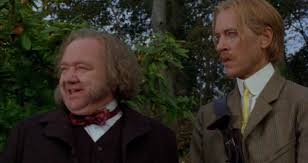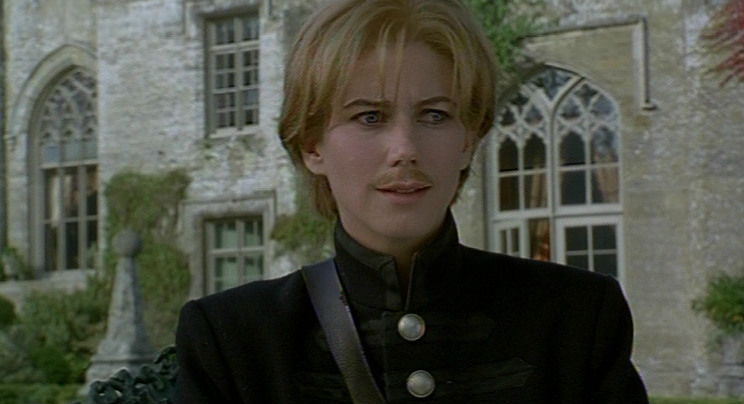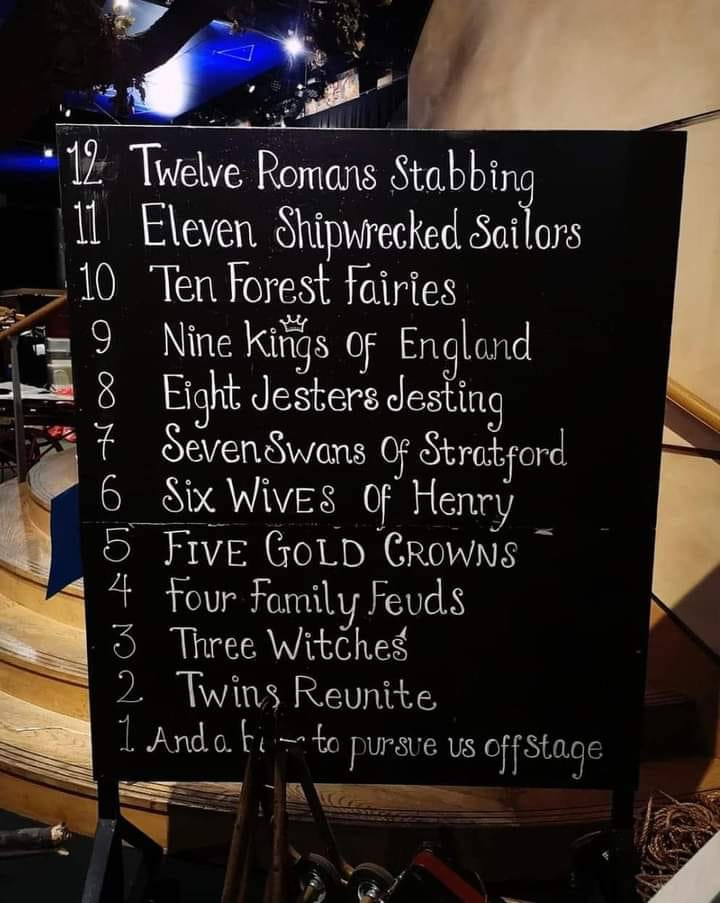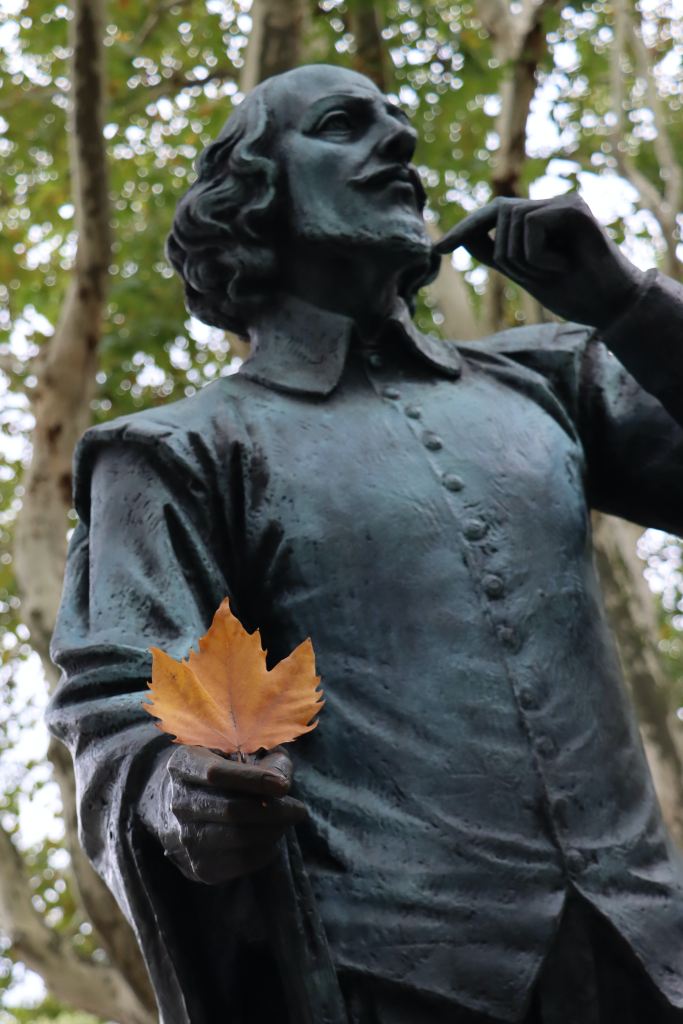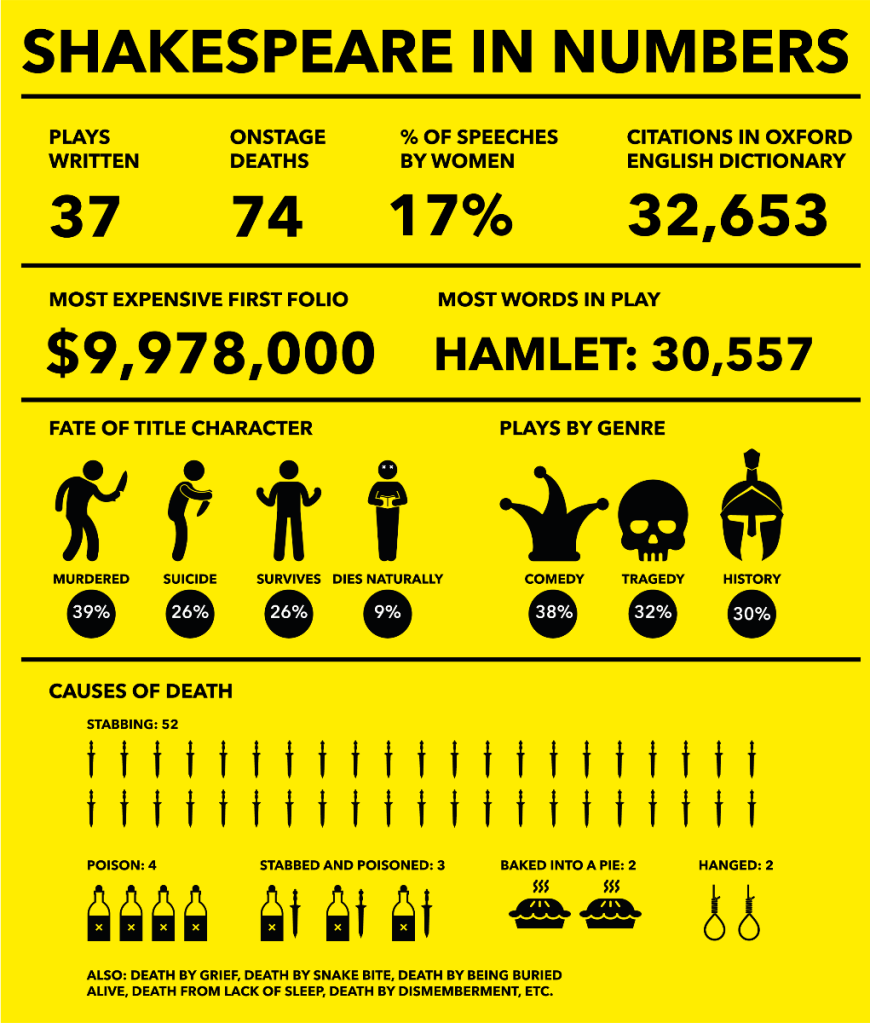I’ve been seeing quite a few end-of-the-year posts all over the place, as one usually does around this time. And, even though I intend to do at least a few more posts here on the Willy Wigglestick blog before the end of the year, I am a church musician, so this month will be pretty busy for me. So I thought I’d take just a few minutes to look back at this year’s Shakespeare blogging here on the WW blog, to reflect on how it’s gone.
The first few months of the year were uneventful, as I took a bit of a hiatus from my blogging activities for a little while, after consolidating all of my blogs into one personal blog at Corybanter.com. However, by April, I had begun taking a new look at all the work I had put into the Willy Wigglesticks design here on WordPress, and I decided to revive the blog. And that went pretty well for a little while: I discovered Cunk on Shakespeare, re-watched the excellent Shakespeare based comedy called Complete Works, and wrote a reader’s guide to the textual history of Hamlet for my colleagues who attend Shakespeare Allowed! here in Nashville.
Things cooled off for a little while as I got busy wrapping up the choir season at my church job, but I did manage to write a review of the excellent book, The Millionaire and the Bard, a history of Henry Folger, founder of The Folger Shakespeare Library in Washington, DC. After the summer was over, things came back to life here, as I began to contemplate the upcoming 400th anniversary of the publication of the First Folio.
As I worked on various posts about the Folio and its history, I decided to revamp the design of the blog just a bit. After a few little technical glitches, I managed to craft it into a design that I think looks good, and is easy to navigate. Shortly after that, I expanded the social media presence of the blog, with new dedicated accounts on Instagram, Threads, Post.news, Pixelfed, Tribel, MeWe and Mastodon. And to keep all of those social media feeds straight, I created a Linktree for the blog.
So, dear reader, despite a few little gaps throughout the year, it’s been a productive one for the Willy Wigglestick blog, I think. If you’ve popped in occasionally to read my Shakespeare content, you have my deepest thanks. I hope it’s been enjoyable for you, and that you keep coming back. I’d love to hear from readers about what they’ve liked here, or what they haven’t liked. As we head to 2024, I hope to keep bringing you interesting and entertaining Shakespeare content in the New Year. I hope your holiday season is enjoyable and fulfilling! Thanks for reading.

